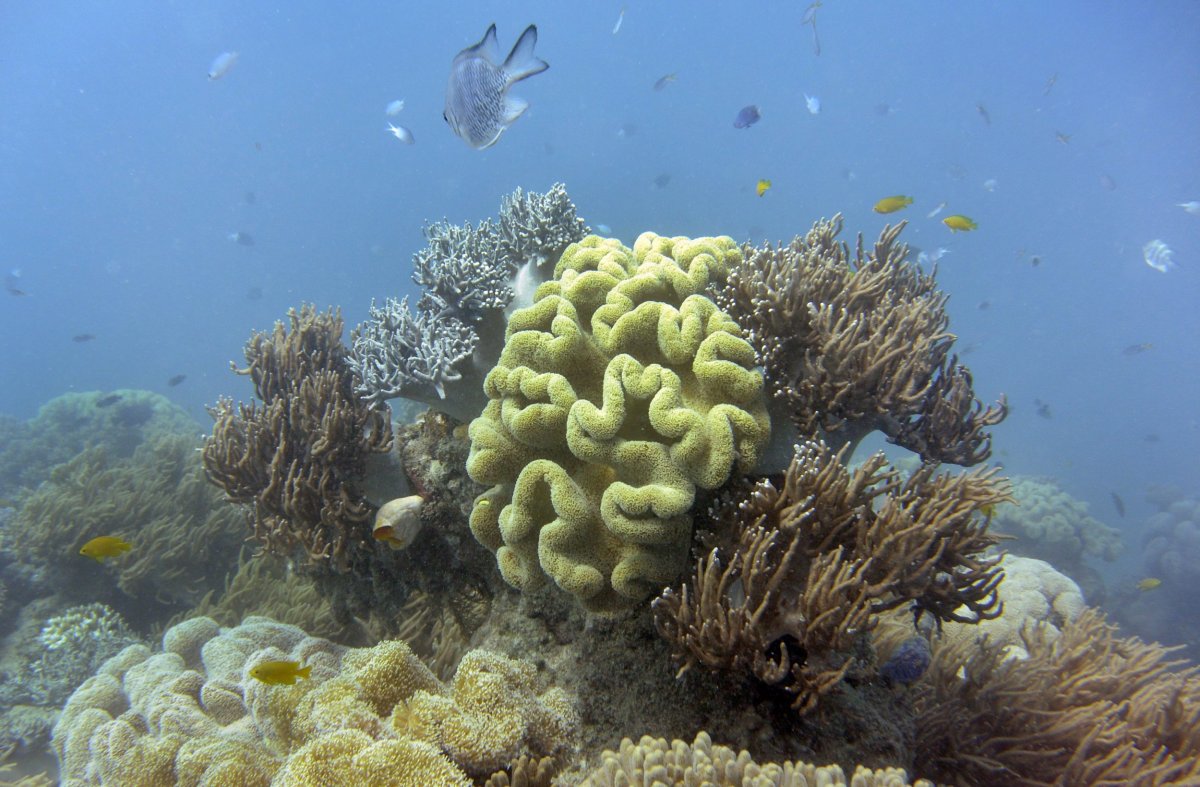Corals on the Great Barrier Reef are dying. Short of reversing global warming, scientists don't know exactly how to save it. But using a gene editing tool known as CRISPR-Cas9 might give them a better idea.
Results published Monday in the Proceedings of the National Academy of Sciences showed that the genes of coral larvae can be edited with CRISPR-Cas9—which means scientists might be able to study which genes make corals resilient or susceptible to climate change.
Coral reefs are important, Phillip Cleves, a postdoctoral researcher at Stanford and one of the authors of the paper, told Newsweek. They produce energy for the ecosystem around them, protect our shores, and provide shelter for fish that live in the area. "There's really a lot of economic and ecological significance of these organisms. They're kind of like the rainforest of the ocean," he said.
That "rainforest" is seriously threatened. When the coral gets very hot, it can bleach—and bleaching is very, very bad. Bleaching means coral is dying. Unfortunately, that's exactly what happened to a lot of the Great Barrier Reef during 2016.
A paper published Wednesday in Nature found that nearly 30 percent of the Great Barrier Reef's coral cover, in northeastern Australia, died off between March and November 2016. In one section, nearly 50 percent died. (Coincidentally, November 2016 is also when Cleves and his colleagues went to catch the coral spawning for their research.)
If Cleves and other researchers want to save the coral reefs, it would be helpful to know some basics about the organisms' biology. "We basically know very little about the genetic basis for what's happening. We don't know which genes are involved during coral bleaching or other aspects of coral biology, like skeleton formation and growth," Cleves said. Perhaps there are certain corals that are genetically predisposed to surviving in hotter waters, for example.

For this particular paper, Cleves and his colleagues just messed with three genes. Two of the genes made the coral glow green and red; they were able to make some of the genetically modified coral stop fluorescing. Another gene, FGF1a, may be related to how a baby coral settles and develops.
CRISPR works by guiding an enzyme called Cas to a certain point in DNA strands; Cas then cuts the DNA. If DNA is cut, the cell won't use the gene to produce a protein; basically, the cell should behave as though the gene isn't there.
By using CRISPR as Cleves did, perhaps scientists could find those corals and identify which corals might share traits that make them more resilient to the challenges they face. "That basic biology understanding will likely lead to us being able to better know what's going to happen in the future or which populations will be able to survive."
CRISPR isn't perfect, though—previous experiments have shown that the tool can modify unexpected genes. Cleves noted that this paper doesn't discuss these so-called "off-target effects."
It's also hard to know exactly what impact CRISPR-based experiments might have on coral conservation efforts. "This work, like most basic research, the application is uncertain because we really don't know what we're going to discover," Cleves said. "That's the real beauty of the science."
Uncommon Knowledge
Newsweek is committed to challenging conventional wisdom and finding connections in the search for common ground.
Newsweek is committed to challenging conventional wisdom and finding connections in the search for common ground.
About the writer
Kate Sheridan is a science writer. She's previously written for STAT, Hakai Magazine, the Montreal Gazette, and other digital and ... Read more
To read how Newsweek uses AI as a newsroom tool, Click here.








